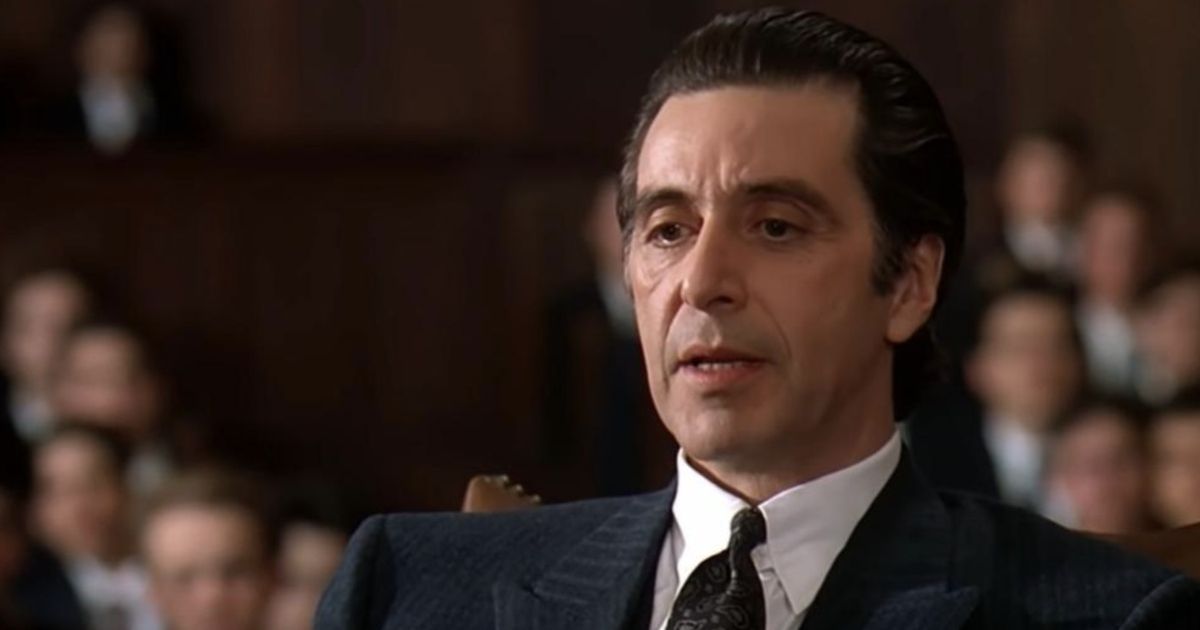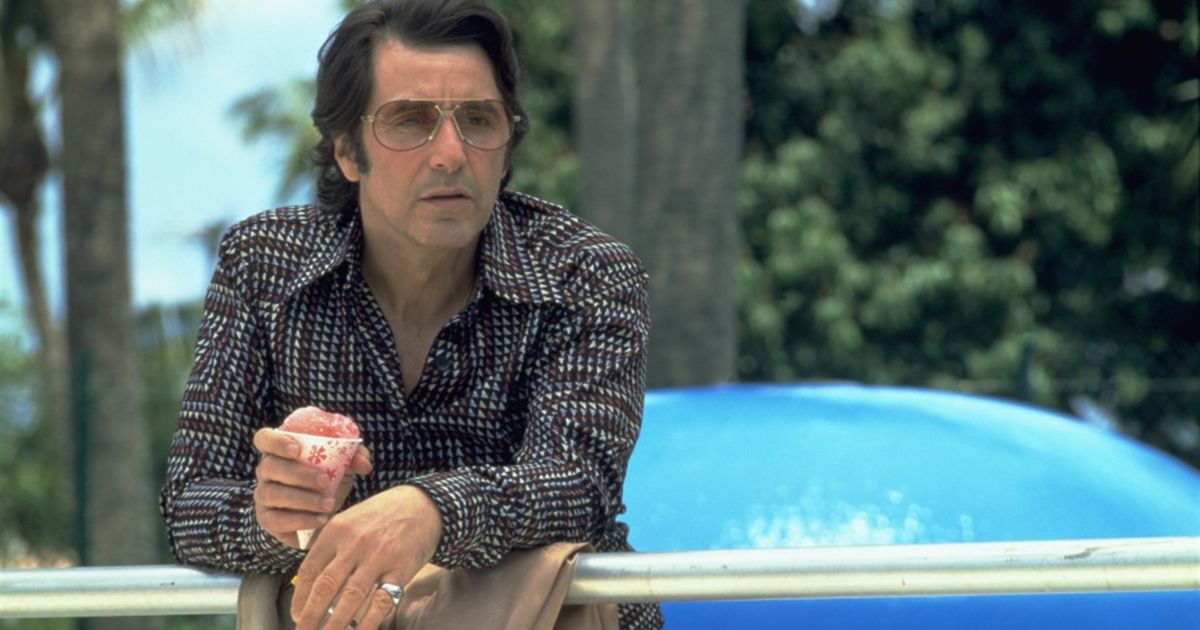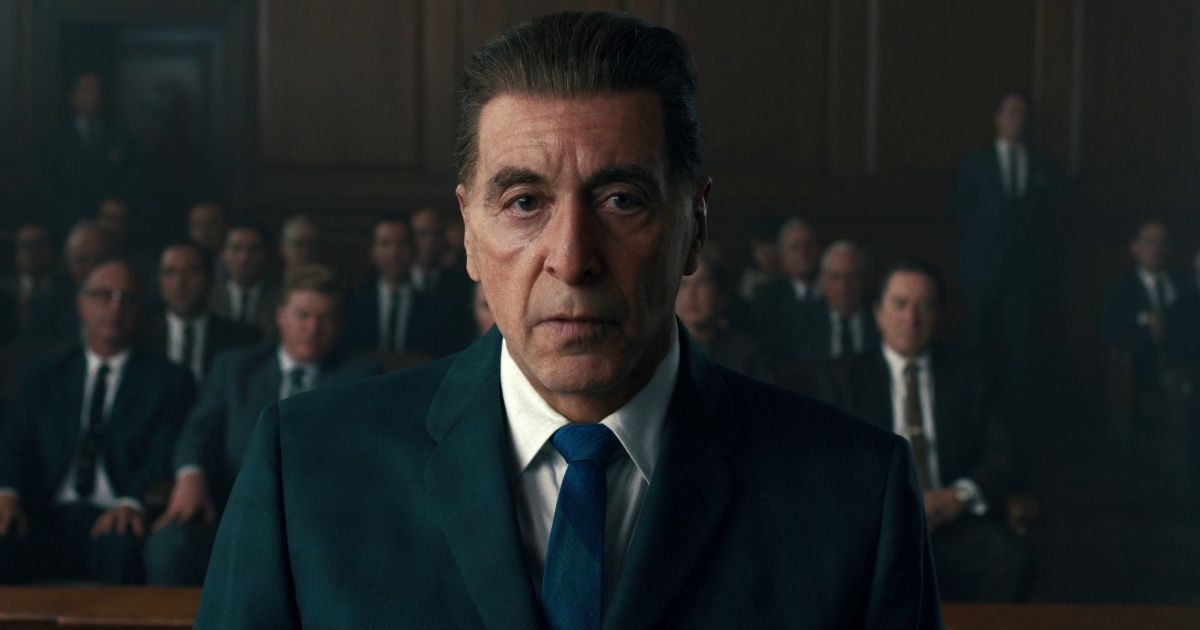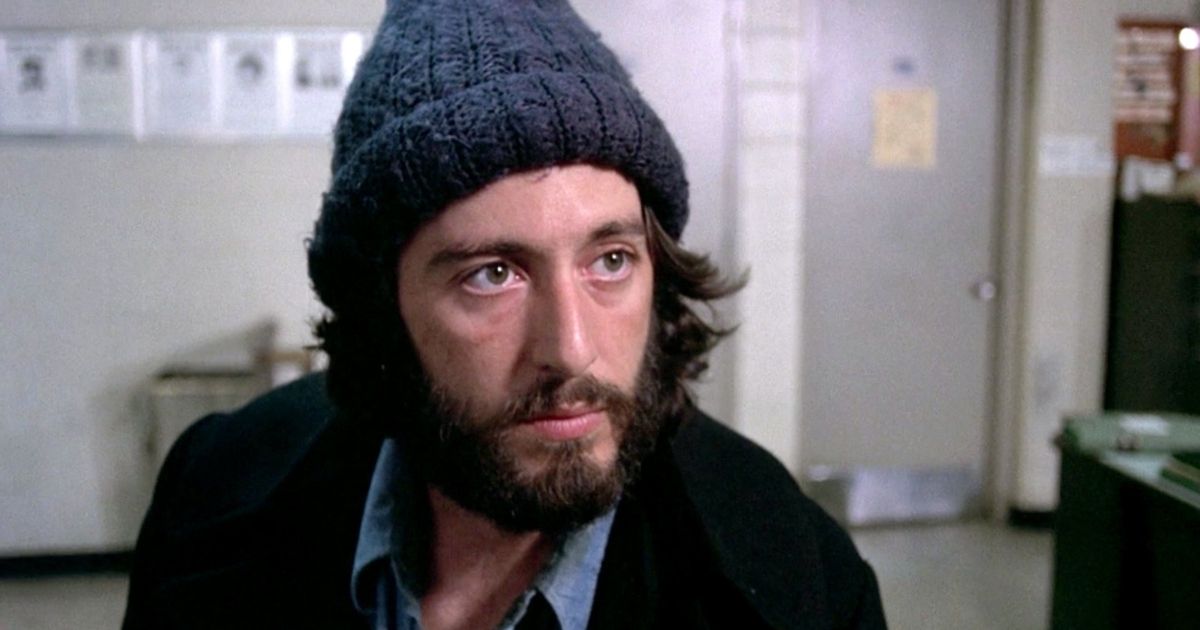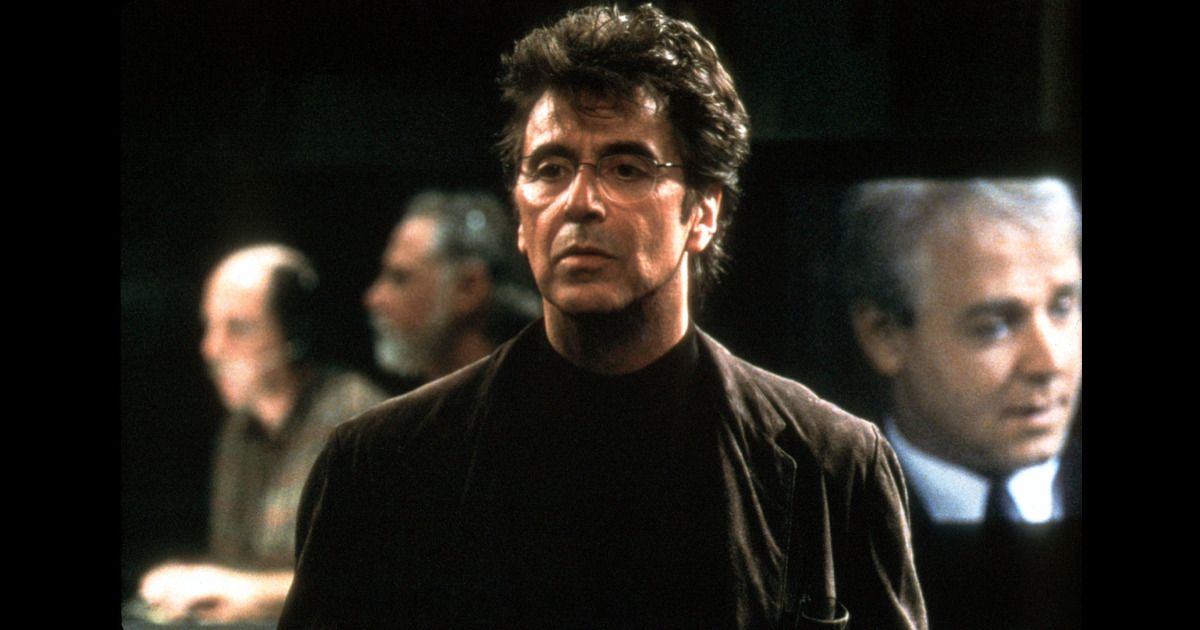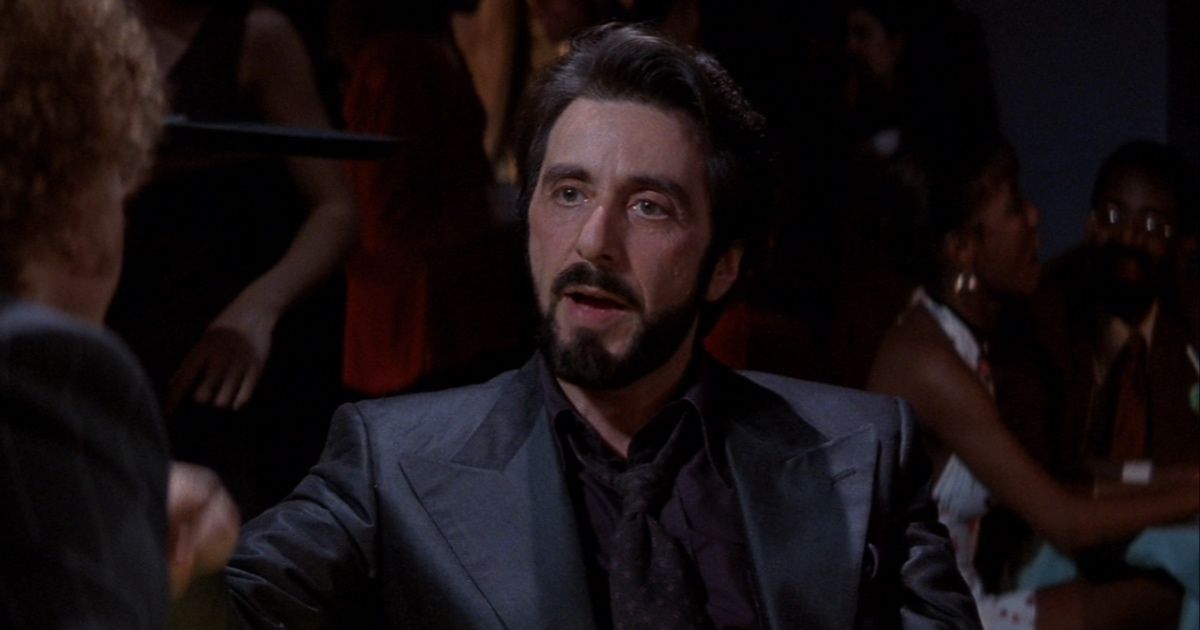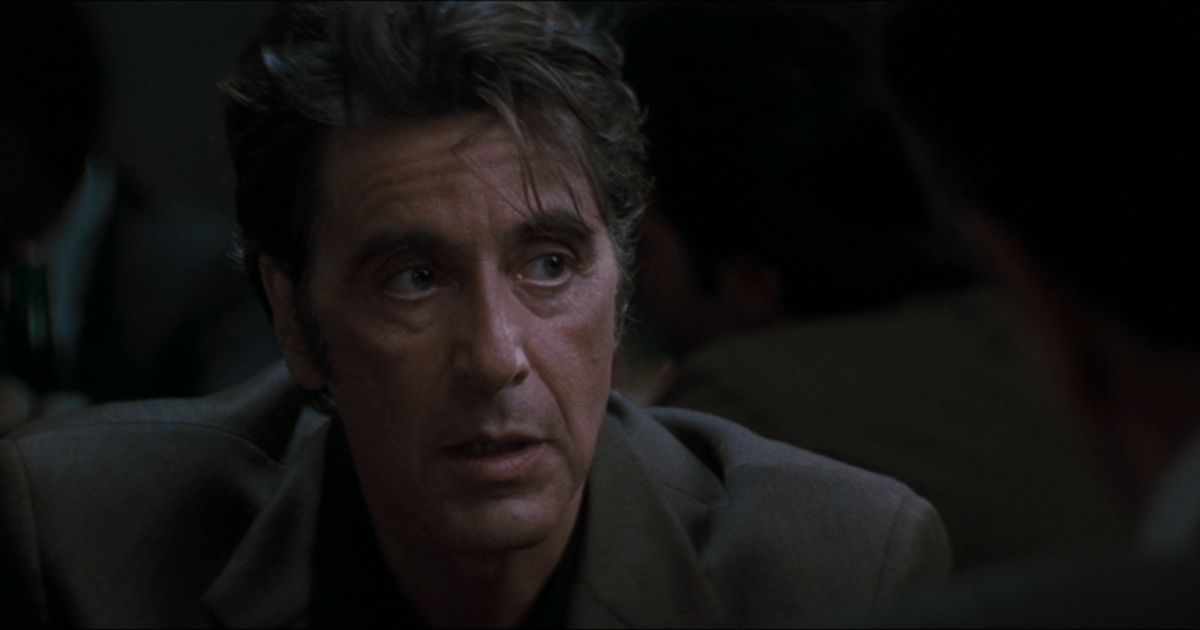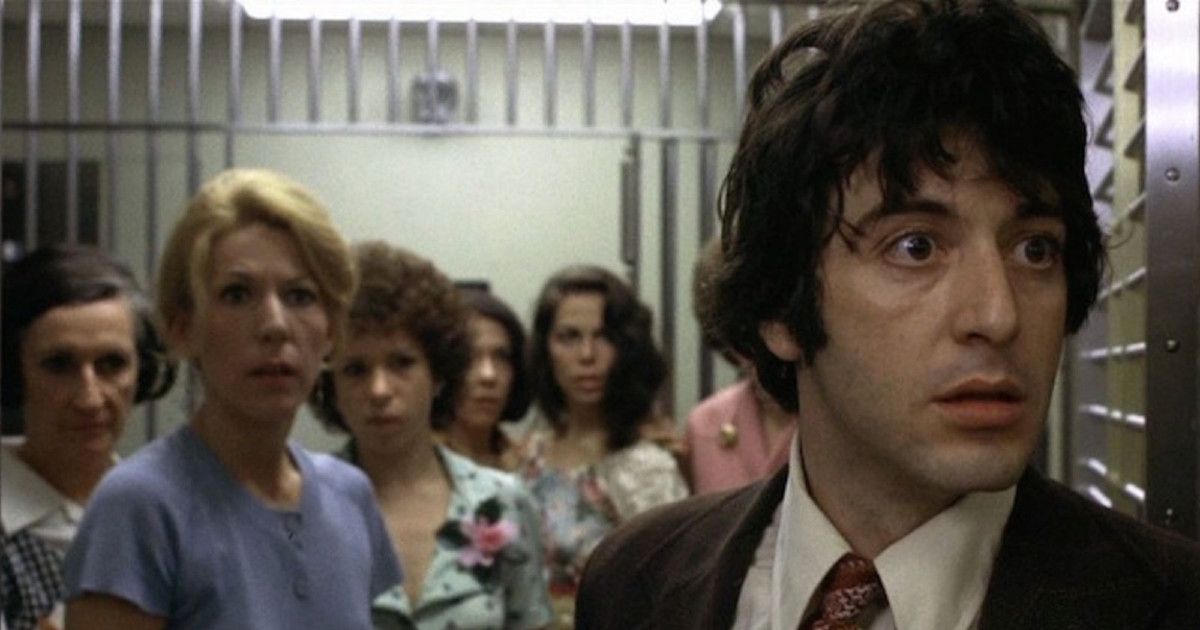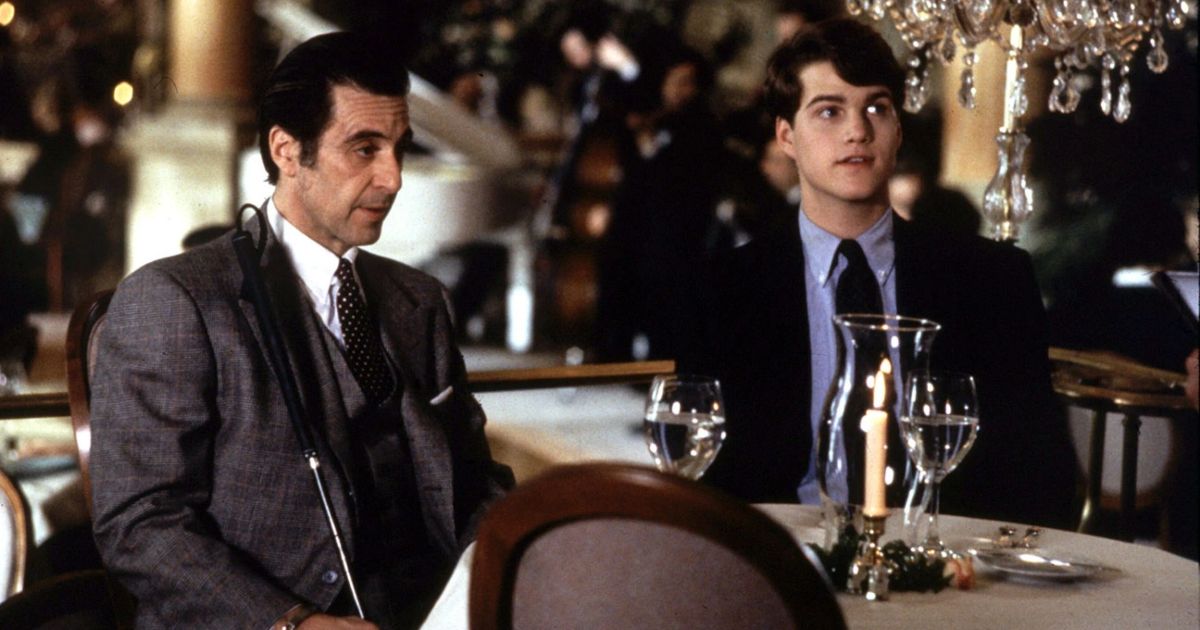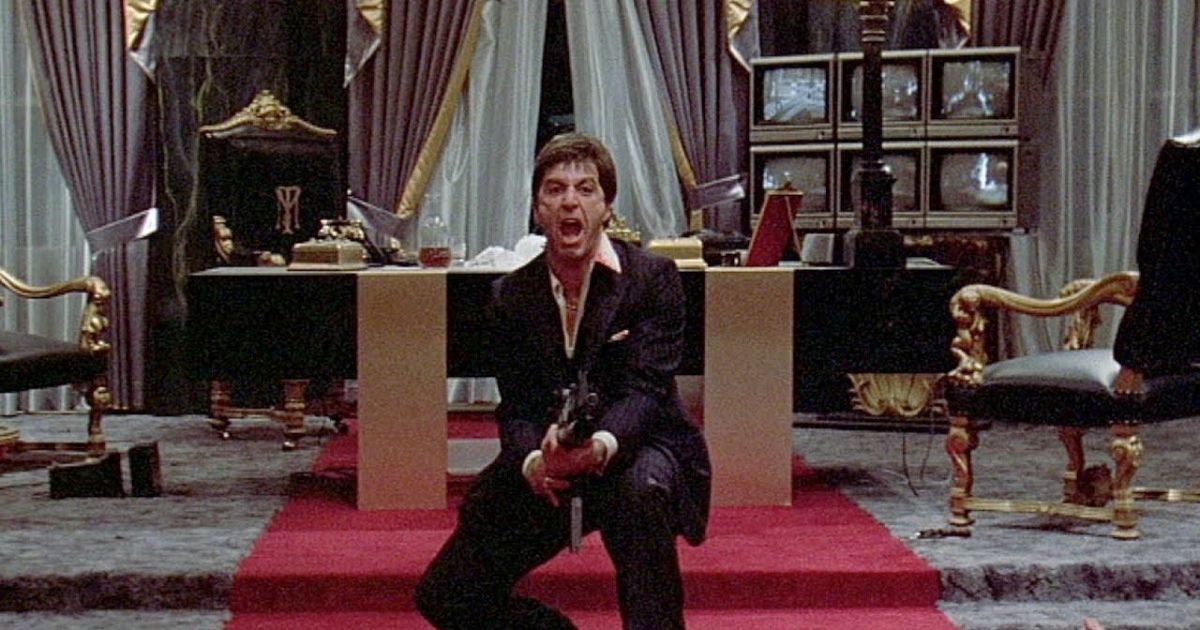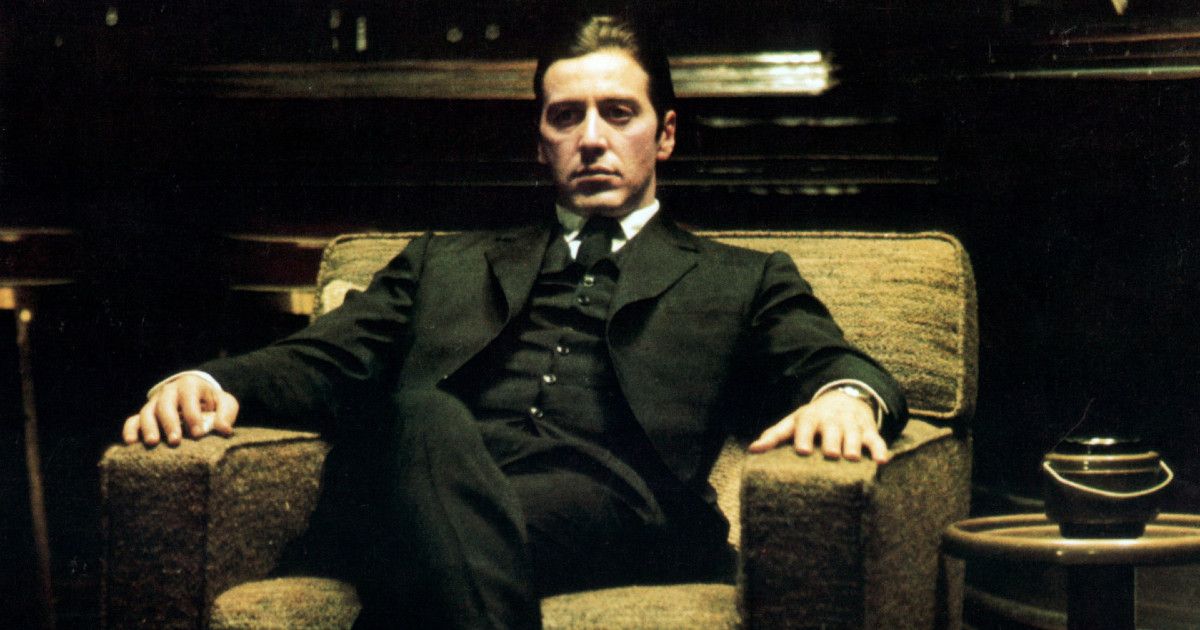Javier Bardem is what the Spanish would call “uno de los mejores”, one of the best. Exceptional actors are a commodity in this day and age, and those who are must have taken inspiration from something or someone truly special. Bardem once declared, “I don't believe in God; I believe in Al Pacino. And that's true. If I ever get a phone call saying, 'Would you like to work with Al Pacino?' I would go crazy.” Whilst the world argues over politics, religion, and cultural disparities, this great Spanish actor identifies a seismic piece of discourse that would have the potential to unify the globe over one matter, bringing us all together - Al Pacino truly is amazing.
Updated April 13th, 2023: If you're a fan of Al Pacino and his bombastic acting style, you'll be happy to know that we've updated this collection of his best films with additional content and even higher quality.
Born to Italian immigrants in East Harlem, New York City, Alfredo James Pacino’s rise from virtual obscurity to critical acclaim was rapid. Pacino made his movie debut in 1969, playing Tony (a minor role) in Me, Natalie. Just three years later, Pacino was starring as Michael Corleone in Francis Ford Coppola’s trailblazing gangster epic, The Godfather.
Since his on-screen baptism, the Dog Day Afternoon star has built a cinematic legacy spanning seven decades, from his first film in 1969 to House of Gucci with Jared Leto in 2021. With his latest movie Sniff set for release later this year (and many people anticipating his other upcoming films, Billy Knight and Knox Goes Away), what better time to take a look at some of his best films.
10 Donnie Brasco
1997's Donnie Brasco is arguably one of Al Pacino’s most underrated movies. From Four Weddings and a Funeral director Mike Newell, the screen adaptation of Donnie Brasco’s autobiographical novel, My Undercover Life in the Mafia, is electric. Starring alongside Johnny Depp, Pacino portrays mobster Lefty Reggeiro, an enforcer for the notorious Bonanno crime family in New York.
At this point in his career, Pacino was seasoned, a virtuoso when it came to posing as a gangster; it was all in a day’s work, or in his case, a dog day’s afternoon. He plays a man kept on the fringes of the mob, very much a spindle in the wheel, nothing more, nothing less. He plays this aging mobster as a man suffering from cancer and responsible for overseeing the new recruit, Donnie, who unbeknownst to him is an undercover FBI operative.
9 The Irishman
Martin Scorsese’s The Irishman was something of a double-edged sword; it simply can’t get any better than the heralded trio of Al Pacino, Robert De Niro, and Joe Pesci performing together, but this is their last hurrah appearing in the same project, as they later confirmed. A Netflix Original Film, The Irishman follows the true story of Jimmy Hoffa (Pacino), a teamster trade-unionist, and his bodyguard Frank Sheeran (De Niro).
The film documents Hoffa’s treacherous, attempted ascent of the US political ladder, and the various misdealing, corruption, and scandals that were entwined with Hoffa’s political motivations. A three-and-a-half-hour runtime for most films would perhaps be considered overkill, but under a Scorsese flagship, the heavyweight narrative is perfectly matched by its heavyweight cast, and Pacino is utterly brilliant as Hoffa.
8 Serpico
Based on the true story of ex-New York cop, Frank Serpico, Sidney Lumet’s grit-infused classic features Al Pacino fresh off the back of his career-defining performance in The Godfather. The biographical drama Serpico concerns Pacino’s Serpico, a straight-edged police officer, who holds his integrity above all else, even in spite of the rampant corruption going on within the NYPD during the 60s and 70s.
Uncompromising in his morally reproachful stance, the officer’s refusal to deviate from his strict code of ethics sees him lead a challenge on those that extort from criminals, a challenger that jeopardies the whistleblower's entire career.
7 The Insider
Al Pacino and Russell Crowe team up with director Michael Mann for this semi-fictionalized drama, centered on the real story of Jeffery Wigand, a tobacco industry whistle-blower. Al Pacino’s depiction of CBS producer Lowell Bergman is as authentic as it is wholehearted.
The Insider remains as poignant as it was 23 years ago, and champions the core values of journalistic integrity by separating fact from fiction and by holding accountable the powers that be. In a world dictated by major corporations, the sentiments echoed in this screenplay act as a refreshing, albeit alarming, reminder of what perseverance and defiance in the face of adversity can achieve.
6 Carlito’s Way
Based on Edwin Torres’ novel of the same name, Carlito’s Way had purportedly interested Al Pacino 20 years prior while he was training in a New York boxing gym in preparation for his film, Serpico. After several years of legal technicalities and a number of attempts to get the film made, it was eventually picked up by director Brian De Palma and screenwriter David Koepp.
The movie chronicles the life of Carlito Brigante, following his early release from a 30-year prison sentence. Determined to reform his life, Carlito is quickly but inadvertently re-submerged into the murky waters of New York’s criminal underworld. Along with a dazzling performance from counterpart Sean Penn, as Lawyer Dave Kleinfeld, Al Pacino exudes slick, razor-sharp charisma and the devilish valiance that makes him such a likable handful in this gripping crime drama.
5 Heat
The film world is entitled to feel a tad aggrieved at the fact that there are only four films that star Al Pacino alongside Robert De Niro, and Michael Mann’s Heat is a part of that exclusive club (although they only appear in two scenes together), and it certainly doesn’t disappoint. Perhaps it’s insulting to liken this masterpiece to a game of cat and mouse, so instead, it’s more befitting to analogize it to a fiercely competitive game of chess.
Highly-skilled bank robber Neil McCauley (De Niro) carries out a series of heists with his crew of accomplices, despite being under the attentive eye of Lieutenant Vincent Hanna (Pacino), who is out to catch the mastermind criminal. Roger Ebert described Heat as, “The greatest heist movie ever made. It includes the best bank robbery scene ever filmed (by far) and also the most influential”.
4 Dog Day Afternoon
After the peerless Sidney Lumet and Al Pacino had already collaborated on Serpico, 1975 was only going to get better for the actor-director duo, with the critical love-in surrounding another gritty biographical crime drama, Dog Day Afternoon. However, this time, rather than playing an ethically righteous cop, we see Pacino on the other side of the law, as a bank robber. His rendition as down-on-his-luck Sonny Wortzik, a petty criminal, and vastly inexperienced in the ruthless world of robbing banks.
In desperate need of money to pay for his girlfriend’s operation, Sonny along with equally out of their depth accomplices, Sal (John Cazale) and Stevie (Gary Springer) embark on a bank heist that goes terribly wrong. Dog Day Afternoon offers a fascinating character study, a psychoanalytical breakdown of the central protagonist, Sonny, a man steeped in this almost incomprehensible complexity.
3 Scent of a Woman
Remarkably, Al Pacino recorded his only Academy Award win for his magnificent portrayal of Lieutenant Colonel Frank Slade in Martin Brest’s Scent of a Woman. It tells the story of blind war veteran Frank Slade, who forms an unlikely friendship with his schoolboy caregiver Charlie (Chris O’Donnell). Embittered, unceremonious, and domineering are just some of a shortened list of characteristics one would attribute to Lieutenant Colonel Slade.
As the Oscar triumph suggests, this is one Al Pacino’s finest performances, in a career littered with them. Frank Slade’s resistance to conformity constantly wrestles with the film’s spirited, human voice, and the natural urge to care. Pacino compliments being a scary authoritarian with immaculate comedic awareness. Al Pacino’s performance radiates through this beautiful, hilarious, and heart-warming movie and makes it one of his best.
2 Scarface
“Say hello to my little friend” may sound like a pervert about to flash someone in the street, but it’s arguably one of the (if not, the) most famous lines in one of the most famous death scenes in cinematic history. Uttered by the drug-lord Tony Montana in Brian De Palma’s Scarface, during his cocaine-fueled psychotic episode, the line is the culmination of the story of a Cuban refugee, Tony Montana (Al Pacino), and his accomplice Manny (Steven Bauer), who arrive in America in search of a better life.
The pair quickly become immersed in the illegal world of drugs and narcotics, taking on several drug kingpins along the way, and gradually making their way up through the ranks of power and influence in their newfound profession. Tony struggles with his personal demons and is subsequently demented by his own drug use, relationship troubles and his increasingly large bank balance.
Al Pacino plays Montana with such pizzazz and conviction, and succeeds in making him a truly detestable and grotesque character. While at the time of its release, it received little in the way of critical reception, nor was it nominated for any Academy Awards, it has since amassed popularity and status as a cult classic.
1 The Godfather Trilogy
Unsurprisingly, Francis Ford Coppola’s The Godfather trilogy has been touted as the best film series ever made, and it is unquestionably a breathtaking feat of filmmaking. The Godfather revolutionized the gangland crime-drama genre, setting a precedent and blueprint for how future films of the like should be made. More generally, it transformed cinema and has subsequently transcended the realms of film, and has become a point of social reference. Goodfellas, Scarface, Donnie Brasco, The Departed, (the list goes on), have all taken a piece of The Godfather in one way or another.
The trilogy follows the story of the Corleone Italian-American crime family. Patriarch Vito Corleone (Marlon Brando) and son Michael (Al Pacino) become embroiled in a vicious mob war between several other crime families. The trilogy centers around themes of love, loss, loyalty, betrayal, and revenge, while Michael Corleone battles to salvage his marriage, family, and business. Al Pacino solidified his status as a legend of film just a few years after launching a career in the industry.

